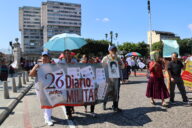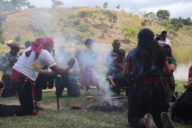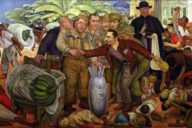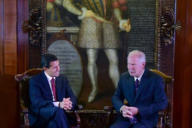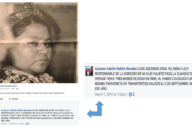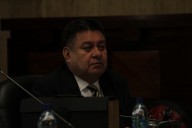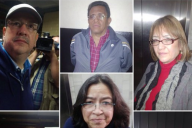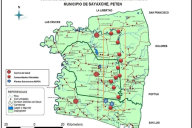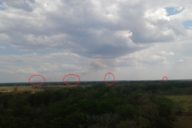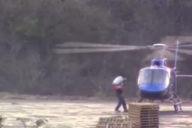CMI reports attacks after coverage in Alta Verapaz
0Guatemala. 29th of August, 2014
From the beginning of a coverage that a team belonging to the Independent Media Center in Guatemala (CMI-G) made on the most recent evictions in the department of Alta Verapaz, completed by agents
the National Civil Police, army and some civilians who were accompanying the operative irregularly, a string of attacks started against CMI-G; among these are the attacks against our web page and server, which impeded our immediate publication of the information that was gathered during the occurrences in Alta Verapaz. 1 [1] In this joint operative more than a hundred families were displaced, while five community leaders were arrested and three farmers were killed, in incidents which so far has not been cleared up.
In the Verapaz region, in the north of the country, there are strong interests related to hydroelectric megaprojects, petroleum extraction and mining, in addition to interest related to monocultures used in the production of bio fuel.2 [2]
In this context, during night on the 23th of August, a person (we avoid the name for safety reasons) who lives in the same house as the reporters whom realized the coverage on the mentioned eviction, where abducted. The person was retained for several hours, threatened, beaten and harassed. Along with the beating, direct threats against the reporter Gustavo Illescas and CMIs work were realized. Gustavo Illescas is author of the articles about the recent evictions. There has been delivered a complaint to the police after this crime.
The recent attacks are not the first. The collective Emancipa Producciones, part of CMI, was victim of persecution after covering the protests and mobilizations of the teacher students, and was further harassed during coverage of the installation of the hydro electrical plant Saqja’ (Purulhá), while it also was intended to impede the projection of the documentary “La Propuesta Impuesta” during a film festival. In addition, during several coverage’s of the anti-mining resistance in “La Puya”, San José del Golfo, CMI experienced intimidations, threats, and intents of censure, events that was later brought to court. The legal process, interposed by CMI and other external alternative reporters, resulted in a sentence against personel from the mining company Exmingua.
The attacks have coincided in time with recent cases of evictions and repression against communities and social movements made by public forces; cases where the conventional press have given little or no attention, or have repeated governmental biased discourses.3 [3] Nor was the CMI-G
the only attacked. Ricard Busquets, communicator from Comite de Unidad Campesina(CUC), has been criminalized and harassed on several occasions; Francisca Gómez Grijalva was sought put on trial for a column opinion where she critiqued the abuse of power by Cementos Progreso, between
other cases.
CMI-G believes that the attacks are of great concern and indicate a rising trend since the beginning of this government. The statements coming from the Minister of Government about a possible regulation of critical content in social networks, and law proposal 4843, presented by the political party LIDER, represent an attempt to create a legal framework that serves to accuse social communicators that address certain topics of espionage, terrorism and other offenses social communicators addressing certain issues. These measures seek to provoke self-censorship, and promote misinformation among civil society and isolation of communities in the actual scenario of greater conflict and repression.
As a result of the foregoing, we publicly condemn these attacks; and we express our solidarity with the people and the collectives suffering repression, persecution and censorship from the government. We demand a prompt and effective investigation of the Public Ministry; and from the government we demand respect for the right to freedom of expression and free dissemination of ideas, and to respect the physical integrity and work of all people who document and report events that undermine dignity and human rights. Without these guarantees real democracy is impossible.

